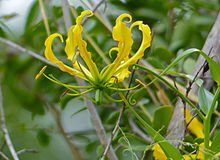Read in : தமிழ்
Kodambakkam was previously known as “Kodalambakkam” (also known as part of Puliyur) and a stray verse by Vakeesa Munivar, author of “Gnanamirtham,” a great Saivite religious work, says that his preceptor, Paramananda Munivar, resided in Kodalambakkam. Vakeesa Munivar, who was a contemporary of Rajadhiraja Chozha in the twelfth century, also lived for some time in Thiruvotriyur, which was visited by him along with the king, according to an inscription. Vakeesa Munivar, in his verse, hails his preceptor as “Nar Kodalambakka Adhipan, Thirunerikkavalan, Saiva Sikamani”. Hence it is clearly established that Koda(la)mbakkam and the Siva temple there were in existence even 1,000 years ago.
Vageesa Munivar was an important leader of a Saiva Siddhanta sect but more about him later. Here, we merely point out to two his references which state that Kodalam was the place where his guru Paramanandha Munivar lived. The reference to Kodalam as the place where Paramananda Munivar lived is further recorded in his work Gnaanaamrudham.
It is amusing to note that a self-styled chronicler of Chennai city attributed the name Kodambakkam to Goga Bagh, a place where horses were stationed, without caring to check ancient Tamil literature and Tamil (besides Grantha) inscriptions available all over Tamil Nadu, right from 5th century. What is worse that his concocted stories were accepted as the whole truth by a section of the population in the city believing that its age was only 380 or so, suppressing the fact that there is recorded history from 1st century that Chennai existed that too as a much larger city than British-occupied Madras. They also ignored the fact that the old Chennai went by the name Puliyur Kottam comprising Chennai, Chengalpattu and Tiruvallur districts, somewhat closer to Greater Chennai of today. The history of over 1,700 years of ancient Chennai was sought to be pushed under the carpet and obliterated, merely to sing the praise of the British Raj, and conceal the work of Tamil writers and scholars.
Chennai 2000 Plus Trust proposes to restore all these ancient works by Tamil stalwarts in various walks of life. Chennai Maadham (in the month of October) will give a glimpse of their extraordinary work in the cause of Tamil, its literature, music, trade and commerce.
Read in : தமிழ்











